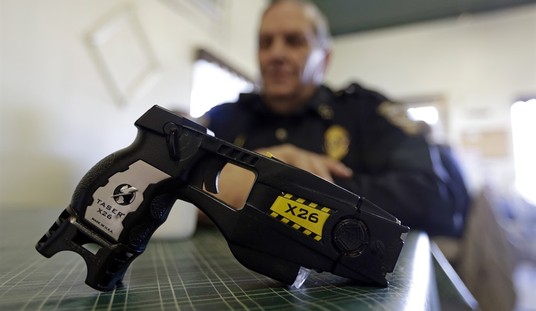Late last month an aide to Massachusetts Gov. Maura Healey was arrested and charged with cocaine trafficking and illegal gun possession, and was ordered held without bond after a judge deemed him dangerous.
This week, however LaMar Cook was sprung from jail after a Superior Court judge reversed that finding of dangerousness and granted him $85,000 cash bail, which will allow him to remain free... unless he's ultimately convicted of the charges.
Cook’s defense lawyer, Kedar K. Ismail, said he felt the cash bail was steep.
“We thought the bail was a little high. But we’re working to get this gentleman back home to his family,” Ismail said.
Previously, Cook had been deemed “dangerous” to the community, but Ismail appealed to Ritter last week about a previous ruling by a District Court judge that Cook should be held behind bars without bail.
“How are there no conditions of release that would quell the concerns of the commonwealth?” Ismail asked Ritter on Nov. 7.
That same question applies to Kyle Culotta, the Air Force veteran who was arrested in Massachusetts earlier this year for nothing more than possessing firearms without a license. Culotta, who had no previous criminal history and was essentially living out of his car with his girlfriend as they traveled from Arizona to her family's home in New England, was pulled over for a traffic violation and was arrested after informing the officer who was getting ready to tow Culotta's car that there were several firearms inside.
Culotta, like Cook, was deemed by a judge to be dangerous and was ordered held without bail. Unlike Cook, however, Culotta's appeals fell on deaf ears, and he spent the entire 120 days allowed under Massachusetts' "dangerousness" statute in a correctional facility before he was finally released on bail in late October.
My issue isn't really with Cook's ability to post bail and get out of jail. I do wonder, though, if Cook's role in state government (which has now come to an end thanks to his arrest) had anything to do with a judge deciding that Cook isn't dangerous after all.
As we discuss on today's Bearing Arms' Cam & Co with Culotta's attorney Dan Hagen, the big problem is that the state's "dangerousness" statute is so broad that people arrested for mere possessory offenses, like Kyle, can be deemed a danger to the community and held without bond for four months. In Culotta's case, the guns in his vehicle were lawfully purchased and legally owned in his home state of Arizona. There have been no allegations that Culotta was planning on committing any crime of violence, nor does he have a violent past. The mere act of keeping arms without a Massachusetts-issued permission slip is what made Culotta dangerous in the eyes of the State, and that's a dangerous proposition in and of itself.
Hagen says prosecutors seem to be going after non-residents like Culotta every chance they get, and he has multiple clients with similar stories; legal gun owners who had no idea that they were violating the law when the crossed into Massachusetts with a firearm. One woman from Connecticut was even arrested at a local hospital after she was involved in a car accident and suffered injuries. An officer found a pistol in the center console of her vehicle, and cops tracked her down while she was getting treatment so they could place her under arrest.
Oddly enough, she wasn't deemed "dangerous" by the courts, which is fantastic for her but another sign of the arbitrary and subjective rationale used by judges around the state. As Culotta was cooling his heels behind bars, for instance, a man accused of shooting at a car with a pregnant woman inside was granted bail in Boston after a judge decided he too wasn't dangerous enough to hold without bond.
The broadness of the "dangerousness" statute and the discretionary authority it gives to judges is a huge problem. The Gun Owners Action League has lobbied lawmakers to amend the law and remove mere gun possession from the list of offenses that qualify for someone to be held without bond for 120 days, but it remains to be seen if there's any interest or appetite in the Democrat-dominated legislature to take that modest step. In the meantime, visitors to Massachusetts or even those driving through the state need to be incredibly cautious and aware of the law, les they too find themselves stuck in jail for months on end for the "crime" of exercising their Second Amendment rights without a Massachusetts permit.
Editor’s Note: After more than 40 days of screwing Americans, a few Dems have finally caved. The Schumer Shutdown was never about principle—just inflicting pain for political points.
Help us report the truth about the Schumer Shutdown. Use promo code POTUS47 to get 74% off your VIP membership.










Join the conversation as a VIP Member